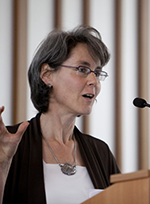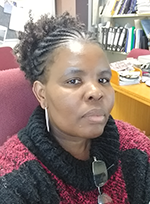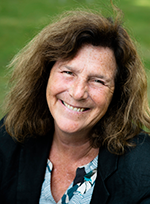Timetable
Click the star to add/remove an item to/from your individual schedule.
You need to be logged in to avail of this functionality.
Log in
-
Friday
18 June -
Saturday
19 June -
Sunday
20 June -
Monday
21 June -
Tuesday
22 June -
Wednesday
23 June -
Thursday
24 June
Time zone: Europe/Helsinki
The working group on 'Archives' takes the opportunity the congress provides to meet, share news, discuss future plans, register new members, and elect their boards. SIEF members interested in joining a working group (there are no fees) are warmly invited to attend.
The working group on 'Food Research' takes the opportunity the congress provides to meet, share news, discuss future plans, register new members, and elect their boards. SIEF members interested in joining a working group (there are no fees) are warmly invited to attend.
The working group on 'Francophone' takes the opportunity the congress provides to meet, share news, discuss future plans, register new members, and elect their boards. SIEF members interested in joining a working group (there are no fees) are warmly invited to attend.
The working group on 'Mobility & Migration' takes the opportunity the congress provides to meet, share news, discuss future plans, register new members, and elect their boards. SIEF members interested in joining a working group (there are no fees) are warmly invited to attend.
The working group on 'Ethnology of Religion' takes the opportunity the congress provides to meet, share news, discuss future plans, register new members, and elect their boards. SIEF members interested in joining a working group (there are no fees) are warmly invited to attend.
The working group on 'Historical Approaches in Cultural Analysis' takes the opportunity the congress provides to meet, share news, discuss future plans, register new members, and elect their boards. SIEF members interested in joining a working group (there are no fees) are warmly invited to attend.
The working group on 'Place Wisdom' takes the opportunity the congress provides to meet, share news, discuss future plans, register new members, and elect their boards. SIEF members interested in joining a working group (there are no fees) are warmly invited to attend.
The working group on 'BASE' takes the opportunity the congress provides to meet, share news, discuss future plans, register new members, and elect their boards. SIEF members interested in joining a working group (there are no fees) are warmly invited to attend.
The working group on 'Museums and Material Culture' takes the opportunity the congress provides to meet, share news, discuss future plans, register new members, and elect their boards. SIEF members interested in joining a working group (there are no fees) are warmly invited to attend.
The working group on 'Space-lore and Place-lore' takes the opportunity the congress provides to meet, share news, discuss future plans, register new members, and elect their boards. SIEF members interested in joining a working group (there are no fees) are warmly invited to attend.
The working group on 'Digital Ethnology and Folklore' takes the opportunity the congress provides to meet, share news, discuss future plans, register new members, and elect their boards. SIEF members interested in joining a working group (there are no fees) are warmly invited to attend.
The working group on 'Young Scholars' takes the opportunity the congress provides to meet, share news, discuss future plans, register new members, and elect their boards. SIEF members interested in joining a working group (there are no fees) are warmly invited to attend.
The working group on 'Cultural Heritage and Property' takes the opportunity the congress provides to meet, share news, discuss future plans, register new members, and elect their boards. SIEF members interested in joining a working group (there are no fees) are warmly invited to attend.
The working group on 'Ritual Year' takes the opportunity the congress provides to meet, share news, discuss future plans, register new members, and elect their boards. SIEF members interested in joining a working group (there are no fees) are warmly invited to attend.
To promote collaboration in higher education in ethnology and folklore studies, SIEF arranges this coordination meeting of academic staff members present at the congress, representing their departments and institutes.
Moderators: Nevena Škrbić Alempijević, Thomas A. McKean
To promote collaboration between various journals in the field, SIEF arranges this coordination meeting of journal editors. All journal editors are welcome.
Moderators: Sophie Elpers, Laura Stark, Karen Miller
The chairs and secretaries of the working groups are invited to participate in this meeting with SIEF’s president and executive vice president in order to exchange experiences and discuss challenges and opportunities.
Moderators: Nevena Škrbić Alempijević, Sophie Elpers
Roundtable discussion on ethnology's societal engagements, acknowledging the 100th anniversary of ethnology in Finland. Sponsored by the University of Eastern Finland. Read more here
The working group on 'Narrative Cultures' takes the opportunity the congress provides to meet, share news, discuss future plans, register new members, and elect their boards. SIEF members interested in joining a working group (there are no fees) are warmly invited to attend.
A chance to meet up with your fellow SIEF Summer School alumni. Find out what everyone’s been up to, renew your connections, and share experiences and ideas. Whether you attended in Tübingen, Portsoy, or Siena, come along to share experiences since your Summer School adventure.
Moderator: Thomas A. McKean
Moderator: Ulla Savolainen (University of Helsinki)
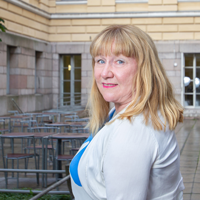 |
Welcome address to the University of Helsinki by the convener Hanna Snellman, Vice-Rector, Professor of European Ethnology, University of Helsinki |
|---|---|
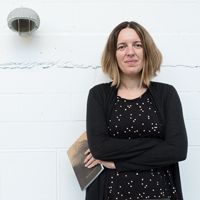 |
Welcome address from the President of SIEF Nevena Škrbić Alempijević, Professor of Ethnology and Cultural Anthropology, Faculty of Humanities and Social Sciences, University of Zagreb |
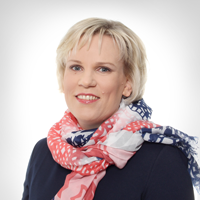 |
Welcome address by Seurasaari Foundation Tytti Steel, Member of Board, Seurasaari Foundation, Postdoctoral Researcher, University of Helsinki |
Opening ceremony / Runesinging by Iki-Turso
Iki-Turso is a performance group experimenting with sonic theatre and runsinging derived from ancient poetry. Iki-Turso formed in 1999 at the 150th anniversary of the Kalevala. At the time, ethnomusicology professor and musician Heikki Laitinen assembled a group of musicians attuned to sung poetry and improvisation to dive into ancient singing cultures. One of the group's core forms of expression is sonic improvisation, which aims both to diversify and develop expressions of the human voice, and to encourage musicians to develop as holistic performers.
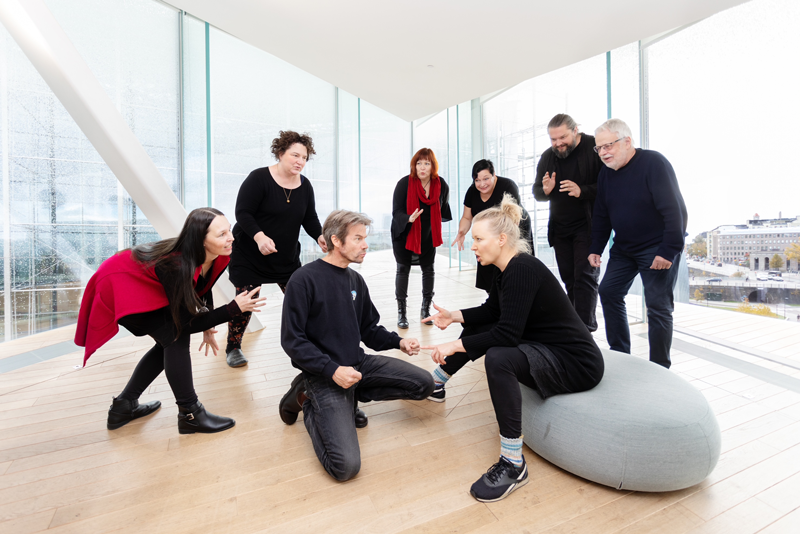
Photo by Wilma Hurskainen
(...Scroll through the opening half hour to get to keynote)
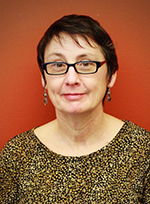
Slow Activism: Lessons from Citizen Scientists
Kathrine Borland (Ohio State University)
Chair: Lotte Tarkka (assistant moderator Eerika Koskinen-Koivisto)
What lessons might folklorists learn about engaging people across ideological difference from citizen scientists? Drawing on work from a five-year collaborative ethnography project located in Southeastern Ohio, I explore the concepts of slow activism and thinking like a watershed.
Kathrine Borland is the Director and Graduate Studies Advisor at the Ohio State University, Center for Folklore Studies, and Associate Professor in the Department of Comparative Studies. She studies and teaches about the artfulness of ordinary life, and the ways in which traditional expressive arenas constitute contested terrain. In 2013, she published International Volunteer Tourism: Critical Reflections on Good Works in Central America (co-edited with Abigail E. Adams, Palgrave). Subsequently, she has published a number of essays on a range of subjects in narrative research, service-learning models, diverse environmentalism, and interrogating race in folklore and in the folklore classroom.
Read the full abstract on the keynotes page
(...Scroll through to 2:09 for this part of the event)
Moderator: Ulla Savolainen (University of Helsinki)
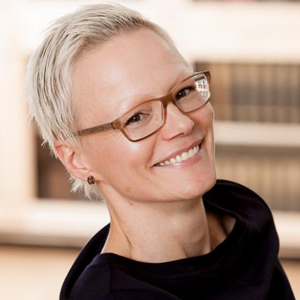
Welcoming address by the Kalevala Society
Niina Hämäläinen, Executive Director, The Kalevala Society
followed by:
Five-string fiddle duo
Finnish five-string fiddle duo Emilia Lajunen and Suvi Oskala joined forces in 2010 with the aim of scouring the archives for great fiddle tunes to bring back into the light of day. The result proved so successful that, as well as continually finding traditional gems to polish, they’ve inspired composers like Mikael Marin of Väsen and accordionist Johanna Juhola to write pieces especially for them, expanding the style of energy-laden chamber folk that they have made their own.
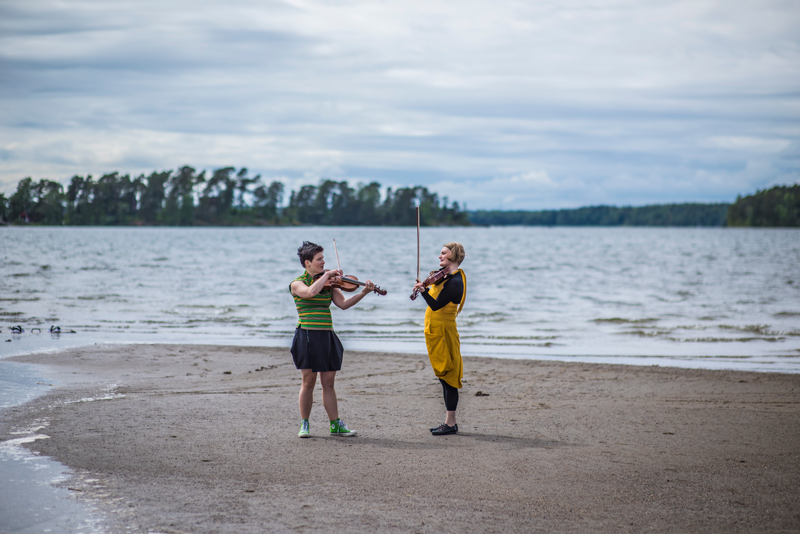
photo by Sami Perttilä
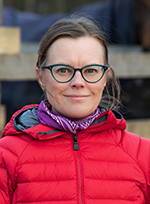
The multiple
worlds of Sámi research
Sanna Valkonen (University of Lapland)
Chair: Coppélie Cocq
Assistant moderator: Pirjo Kristiina Virtanen
Short abstract: In my presentation I will address the ways collaboration between academic research and art can at its best contribute to transgressing academic conventions and mindsets and reveal (dis)ruptures in our established research practices and thinking.
Sanna Valkonen is a Sámi scholar and Professor of Sámi Research at the University of Lapland. Her research fields include the politics of indigeneity and belonging, cultural heritage, gender and religion, and related power relations in the Sámi context. Central to her current work is developing Sámi research concepts and artistic research.
Read the full abstract on the keynotes page
A thematic roundtable discussion with the creators of the works listed below - please view these in advance.
A thematic roundtable discussion with the creators of the works listed below - please view these in advance.
The winner of the SIEF2021 Young Scholar Prize Ahmad Moradi will present his research in a public lecture based on the prize-winning paper:
The Basij of neighbourhood. Techniques of government and local sociality in Bandar Abbas, by Ahmad Moradi.
The paper is a timely examination of the important issues that animate the micro-environments of neighbourhoods. The author’s powerful ethnography is based on fieldwork he conducted among the Basij units, or "revolution guardians", a paramilitary organization operating in Iran. The case-study takes existing conceptions of power and community into new geographic and political terrain. Its street-level observations of everyday enactments of power provide a revealing portrait of how local politics and social structures influence space and place, and how stability is negotiated in fragile communities. Both engaging and, at times, compelling, Moradi reveals the complexity and, sometimes, the beauty of neighborhood politics.
Moderator: Ewa Klekot
The workshop on How to get published will address questions related to publishing in international, peer-reviewed journals in the fields of ethnology, anthropology and folklore.
In the first part, editors from leading international journals (Ethnologia Europaea, Cultural Analysis, Ethnologia Fennica, Anthropological Journal of European Cultures) will focus on key issues such as submission procedures, timelines, the review process, practical matters, single/multiple authorship, financial dimensions, writing in English, and hierarchies in/of publishing, etc.
This will be followed by a short Q&A section. Afterwards, the participants will be allocated to breakout rooms, where they will have a chance to talk to the editors in a more private setting. The workshop is part of the Mentoring Program, but it is aimed at both junior and experienced scholars.
Questions and comments can be sent in advance (until 10 June) to: yswg@siefhome.org.
Speakers:
Editors of relevant journals: Sophie Elpers (Cultural Analysis), Eerika Koskinen-Koivisto (Ethnologia Fennica), Karen Miller (Cultural Analysis), Alexandra Schwell (Ethnologia Europaea), Laura Stark (Ethnologia Europaea), Patrick Laviolette (Anthropological Journal of European Cultures)
Moderators: Ana Svetel, Sophie Elpers
All SIEF Congress participants (junior and experienced scholars) are welcome!
Rules: pros and cons
Ellen Hertz (University of Neuchâtel)
Chair: Laura Stark
Short abstract: Rules are a basic property of human societies and yet they occupy a historically contested place in the modern narrative about what makes us human. Reframing rules as potentialities helps break this spell. It allows us to ask not what should we do but what can we do, and to take the measure of the limits of our actions, as humans and as social scientists.
Ellen Hertz is professor of anthropology at the University of Neuchâtel. Her background in Chinese studies, law and anthropology has translated into a long-standing interest in the complex and ambiguous mechanisms of bureaucratization and marketization that characterize contemporary modernity, and on the place of gender in these configurations. She has published on diverse topics (financial markets; international organizations; intangible cultural heritage; sex work; corporate social responsibility and environmental anthropology) and maintains an active interest in theoretical developments in the social sciences, with an emphasis on gender, citizenship and normative regimes.
Read the full abstract on the keynotes page
The Wenner-Gren Foundation is a key supporter of anthropology worldwide.
Danilyn Rutherford, the Foundation's president, will offer a workshop designed to help anthropologists from different countries and traditions of scholarship navigate the process of getting a grant. They’ll describe the various funding opportunities Wenner-Gren offers for graduate students, faculty and institutions, say something about the review process, and offer helpful tips on how to write a winning proposal.
There will be plenty of time for questions.
Moderators: Nevena Škrbić Alempijević, Nada Kujundzić
A thematic roundtable discussion with the creators of the works listed below - please view these in advance.
A thematic roundtable discussion with the creators of the works listed below - please view these in advance.
Moderator: Ulla Savolainen (University of Helsinki)
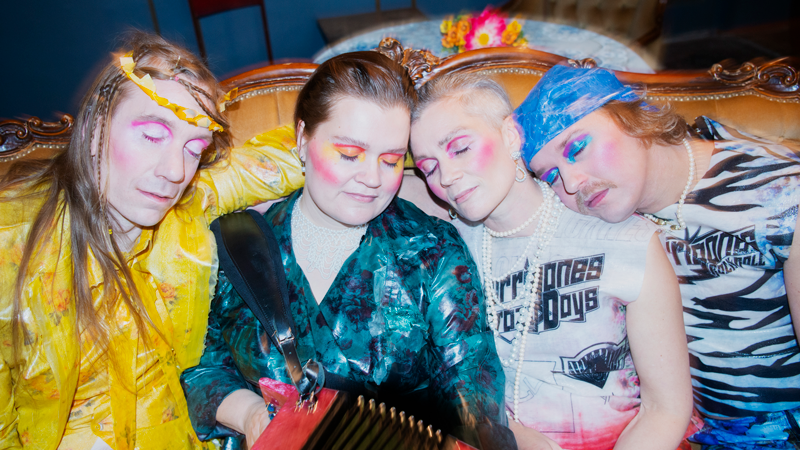
In its music, Suistamon Sähkö combines rap, singing and rowdy raving with accordions and synthesizers. The band has become familiar with their performative stage performances as well as the high-quality visual world where dance, costume design and video art play an important role. The band's audience is unusually diverse: people from all different generations and genders from very variant backgrounds have found a common energy.
In March 2021, Suistamon Sähkö released its long-awaited third album “Beware! Danger". The album is both the most pop and wildest the band has released so far. The rhythm world of Suistamo Sähkö is danceable and at the same time experimental and primitive.
Already a tradition: the reception of SIEF’s journals Cultural Analysis and Ethnologia Europaea in which the journal editors present the journals and their latest issues.
Also, the SIEF2019 issue of the Spanish flagship journal, Disparidades. Revista de Antropología, 76(1), enero-junio 2021, will be presented. It problematizes the topic 'Track changes: Reflecting on a transforming world'.
Furthermore, the planned SIEF2021 issue, a special issue of Ethnologia Fennica, will be announced.
Moderators: Sophie Elpers, Laura Stark, Karen Miller, Alexandra Schwell, Eerika Koskinen-Koivisto, Cristina Sanchez-Carretero
Exploring environment-community connections in Africa’s nature reserves: Overlaying community cultural values to enhance conservation
Susan Keitumetse (University of Botswana)
Chair: Suzie Thomas (assistant moderator Pia Olsson)
Short abstract: At national level in Botswana, certain communities have had to make way for national ad international resources conservation developments in various geographical areas and landscapes of the country. Examples of these are during the establishment of national parks, game reserves, world heritage sites amongst others. At international level approaches such world heritage site designation have before called for designation of what is termed “core zones” in most African sites.
Susan O. Keitumetse (PhD, Cambridge) is UNESCO Chair holder (African Heritage Studies and Sustainable Development) and a research scholar (Cultural Heritage and Tourism) at the University of Botswana.
She is the author of a book volume titled “African cultural heritage conservation and management: Theory and Practice from Southern Africa” (2016) published by Springer – refer publisher website for book details. She is also a lead editor of a published book volume titled: Sustainability in Developing countries: Case studies from Botswana’s journey towards Sustainable Development (2020) by Springer – refer publisher website for book details. In addition to the two internationally published books, Dr Keitumetse has published journals in international journals and book chapters in numerous international publisher books. Dr Susan O. Keitumetse’s work on heritage conservation and management is well documented in her numerous international, national outputs illustrated in several online scholarly profiles – refer Dr Keitumetse google scholar profile.
Dr Susan O. Keitumetse’s work on heritage conservation and management is well documented in her numerous international, national outputs illustrated in several online scholarly profiles – refer Dr Keitumetse google scholar profile.
Her current research work is on projects that the relevance of cultural heritage in enhancing environmental conservation of African landscapes in a way that will lead to the achievement of sustainable development goals. One such project is identifying cultural indicators of protected nature spaces and overlaying them as a way to enhance environmental conservation.
Dr S.O. Keitumetse has a multidisciplinary training; having trained in BA (Archaeology and Environmental science); Post Graduate Diploma in Education (History)- both from the University of Botswana, Botswana. For postgraduate she trained in MPhil in Museums and Archaeological heritage; and a PhD in Sustainable Development and Heritage Management – both from the University of Cambridge, UK
Read the full abstract on the keynotes page
A thematic roundtable discussion with the creators of the works listed below - please view these in advance.
See here for agenda and files for this assembly.
Moderators: Rohan Jackson, Sophie Elpers
Moderator: Ulla Savolainen (University of Helsinki)
On the evening of Wednesday 23rd June the National Museum of Finland hosts a virtual reception and event for the SIEF 2021 participants. The virtual programme consists of a short musical performance in the tower of the museum, a brief welcome speech by Deputy General-Director Hanna Forssell, a virtual tour of the brand new Otherland exhibition, and finally short set of Finnish underground classics handpicked by the museum DJ Susipoika
A thematic roundtable discussion with the creators of the works listed below - please view these in advance.
The idea of this webinar and roundtable is to introduce different career options (personal paths of professionals) and experiences outside the academic sphere. What kinds of career options can we think of besides the academic research, and what kind of skills are needed? How can we use ethnological knowledge in different applied works: tourism, gastronomy, cultural centers, NGOs, etc.? Can we combine the applied carrier with the academic? What kind of skills, special knowledge should we acquire for different “applied fields”? We ask our participants to tell their personal paths, experiences, and ideas. We also talk about positive feedbacks, difficulties, dreams, and reconciliation with the family.
Speakers: Clíona O´Carroll (University College, Cork, Ireland), Håkan Jönsson (Docent, University Lecturer, Lund University), Eyjólfur Eyjólfsson (Manager at The Folk Music Centre in Siglufjörður and ethnomusicologist working with elementary school children on rediscovering the Icelandic langspil), Laura Hirvi (director of the Finland Institute in Germany).
Moderators: Eerika Koskinen-Koivisto, Csáji László Koppány
Closing keynote: "We’ve been talking almost half my life”: Scholarship and Long Conversations in East Germany
Molly Andrews (University of East London)
Chair: Kirsti Salmi-Nikander
Assistant moderator: Ulla Savolainen
Short abstract: This presentation will explore what it means to conduct an in-depth interview-based research project over the course of nearly three decades. My research with East German dissident activists began in 1992. Some of these conversations have continued for 28 years. I will discuss how our relationships have developed, and the ways in which this long-term perspective has impacted upon my scholarship on biography and history.
Molly Andrews is Emerita Professor of Political Psychology at the University of East London and the co-director of the Association of Narrative Research and Practice. In 2019-2020, she was the Jane and Aatos Professor at the Helsinki Collegium for Advanced Studies. Her research interests include political narratives, the psychological basis of political commitment, political identity, patriotism, and aging. Her books include Lifetimes of Commitment: Aging, Politics, Psychology and Shaping History: Narratives of Political Change (both Cambridge University Press), and Narrative Imagination and Everyday Life (Oxford University Press). She serves on the Editorial Board of five journals which are published in four countries, and her publications have appeared in Chinese, German, Swedish, Spanish, French, Czech and Finnish.
Read the full abstract on the keynotes page
Introduction-response by Sarah Green
Moderated by Roger Norum
Abstract:
Eating is both a deeply symbolically dense, as well as an essential activity, and is linked to a dazzling array of political, economic, social, environmental and religious meanings, rules and norms. For that reason, food – raw or cooked, slow or fast, processed or unprocessed, plant- or animal-based – has long been the focus of both academic research and political activism. Food sustains us (in life), connects us (to one another) and emplaces us in the world and on the planet. At once essential to human existence and yet often insufficiently or inequitably provisioned, food also differentiates us, sedimenting social groups and defining social hierarchies. Food is also closely linked to our senses and our memories. Thinking critically about food ethnologically broaches fundamental questions about diversity, humanity and the place of people on the planet: foodstuffs and foodways are tools for understanding societies, cultures and the global and environmental connections that bring them together – or set them apart. This closing roundtable session uses eating and food as a trace for considering the dynamics of how to break the rules through collaborative action in and outside the academy. Invited participants are asked to bring to the table one particular culinary index: a particular foodstuff, a memorable recipe or meal, or any link to the edible or drinkable things that nourish and nurture us as terrestrial beings. With this as a simultaneously epicurean and epistemic point of departure, they will reflect upon its links with their own engagements with activism and academia.
Discussants:
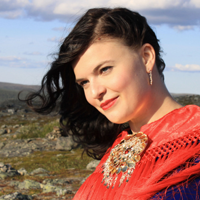 Stina Aletta Aikio - Master of Arts and Design, Stina Aletta Aikio is a Deatnu Sámi experimental artist who combines in their artistic work new media expressions and duodji tradition with modern materials, such as waste, metal and glass. They are interested in the tensions in societies and questions of justice. Aikio has worked actively in the Nordic queer Sámi movement and the positions of minorities within minorities are close to their heart.
Stina Aletta Aikio - Master of Arts and Design, Stina Aletta Aikio is a Deatnu Sámi experimental artist who combines in their artistic work new media expressions and duodji tradition with modern materials, such as waste, metal and glass. They are interested in the tensions in societies and questions of justice. Aikio has worked actively in the Nordic queer Sámi movement and the positions of minorities within minorities are close to their heart.
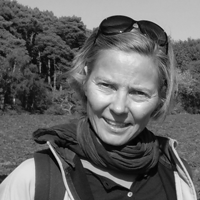 Eeva Berglund - has long explored issues around environmental politics and transformations in notions of expertise. She has a doctorate in social anthropology and an MSc in urban planning, both from the UK. She is currently Adjunct professor of environmental policy, Department of Design at Aalto University, Finland. A publication worth mentioning is the 2019 volume, Dwelling in Political Landscapes: Contemporary Anthropological Perspectives, which she co-edited with Anu Lounela and Timo Kallinen.
Eeva Berglund - has long explored issues around environmental politics and transformations in notions of expertise. She has a doctorate in social anthropology and an MSc in urban planning, both from the UK. She is currently Adjunct professor of environmental policy, Department of Design at Aalto University, Finland. A publication worth mentioning is the 2019 volume, Dwelling in Political Landscapes: Contemporary Anthropological Perspectives, which she co-edited with Anu Lounela and Timo Kallinen.
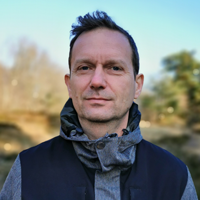 Håkan Jönsson - is associate professor in European Ethnology and senior lecturer in Food technology and nutrition at Lund University (Sweden). His research profile is food, culture and consumption, often conducted in interdisciplinary projects, involving both public and private actors outside academia. He has been Involved in several applied cultural analysis projects encompassing food concept development, retail, regional foresight and culinary tourism. Currently working on Horizon 2020 project NextFOOD- Educating the next generation of professionals in the agrifood system. Co-chair of the European working group for Ethnological food research.
Håkan Jönsson - is associate professor in European Ethnology and senior lecturer in Food technology and nutrition at Lund University (Sweden). His research profile is food, culture and consumption, often conducted in interdisciplinary projects, involving both public and private actors outside academia. He has been Involved in several applied cultural analysis projects encompassing food concept development, retail, regional foresight and culinary tourism. Currently working on Horizon 2020 project NextFOOD- Educating the next generation of professionals in the agrifood system. Co-chair of the European working group for Ethnological food research.
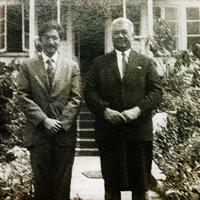 George E. Marcus - is Distinguished Professor of Anthropology at the University of California, Irvine, and founding Director of its Center for Ethnography. Previously, he was Chair of the Anthropology Department at Rice University for 25 years. He was founding editor of the journal Cultural Anthropology. Primary publications are Writing Culture (1986, co-editor), Anthropology as Cultural Critique (1986, co-author),Lives In Trust (1992), The Late Editions series of annuals (editor, 1992-2000), Ethnography Through Thick and Thin (1998), Ocasiao (co-author, 2005), Anthropology of the Contemporary (co-author, 2008), Fieldwork Is Not What It Used To Be (co-editor, 2009), Ethnography By Design (2019, co-author), Collaborative Anthropology Today: a Collection of Exceptions (2020, co-editor).
George E. Marcus - is Distinguished Professor of Anthropology at the University of California, Irvine, and founding Director of its Center for Ethnography. Previously, he was Chair of the Anthropology Department at Rice University for 25 years. He was founding editor of the journal Cultural Anthropology. Primary publications are Writing Culture (1986, co-editor), Anthropology as Cultural Critique (1986, co-author),Lives In Trust (1992), The Late Editions series of annuals (editor, 1992-2000), Ethnography Through Thick and Thin (1998), Ocasiao (co-author, 2005), Anthropology of the Contemporary (co-author, 2008), Fieldwork Is Not What It Used To Be (co-editor, 2009), Ethnography By Design (2019, co-author), Collaborative Anthropology Today: a Collection of Exceptions (2020, co-editor).
Moderator: Ulla Savolainen (University of Helsinki)
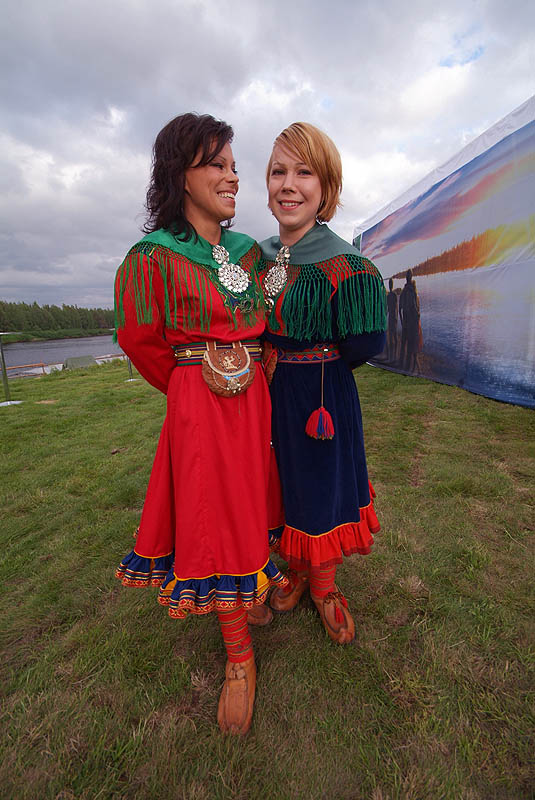 Angelit — Europe’s northernmost music!
Angelit — Europe’s northernmost music!
Founded by Tuuni and Ursula in the village of Angeli, Angelit perform a dramatic soundscape of intensely hypnotic emotion. They organically bring together various rhythms of dance, yoik and animated performance. Their music speaks to exploring and pushing frontiers, drawing on and re-invigorating the traditions of the Europe's indigenous peoples while never failing to respect their roots. Angelit ignite the yoik, an otherwise unaccompanied and monophonic improvisation, with their own electric performance style and drumming accompaniment.
Moderator: Ulla Savolainen (University of Helsinki)
Greetings from Seurasaari
Thank you and farewell address from Hanna Snellman (Vice-Rector, Professor of European Ethnology, University of Helsinki), Nevena Škrbić Alempijević (Professor of Ethnology and Cultural Anthropology, Faculty of Humanities and Social Sciences, University of Zagreb).
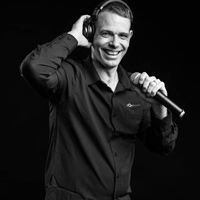 In a closing party you can join virtual dance with others to the beat of DJ Saundi. DJ Saundi has provided more than 25 years of Deejay-experience around Finland, both
night clubs and private-parties. In his DJ-sets you can expect old classics from 80s, 90s as well new EDM and uplifting house tracks – be prepared to put your hands up in the air!
In a closing party you can join virtual dance with others to the beat of DJ Saundi. DJ Saundi has provided more than 25 years of Deejay-experience around Finland, both
night clubs and private-parties. In his DJ-sets you can expect old classics from 80s, 90s as well new EDM and uplifting house tracks – be prepared to put your hands up in the air!
https://www.facebook.com/DJSAUNDI
